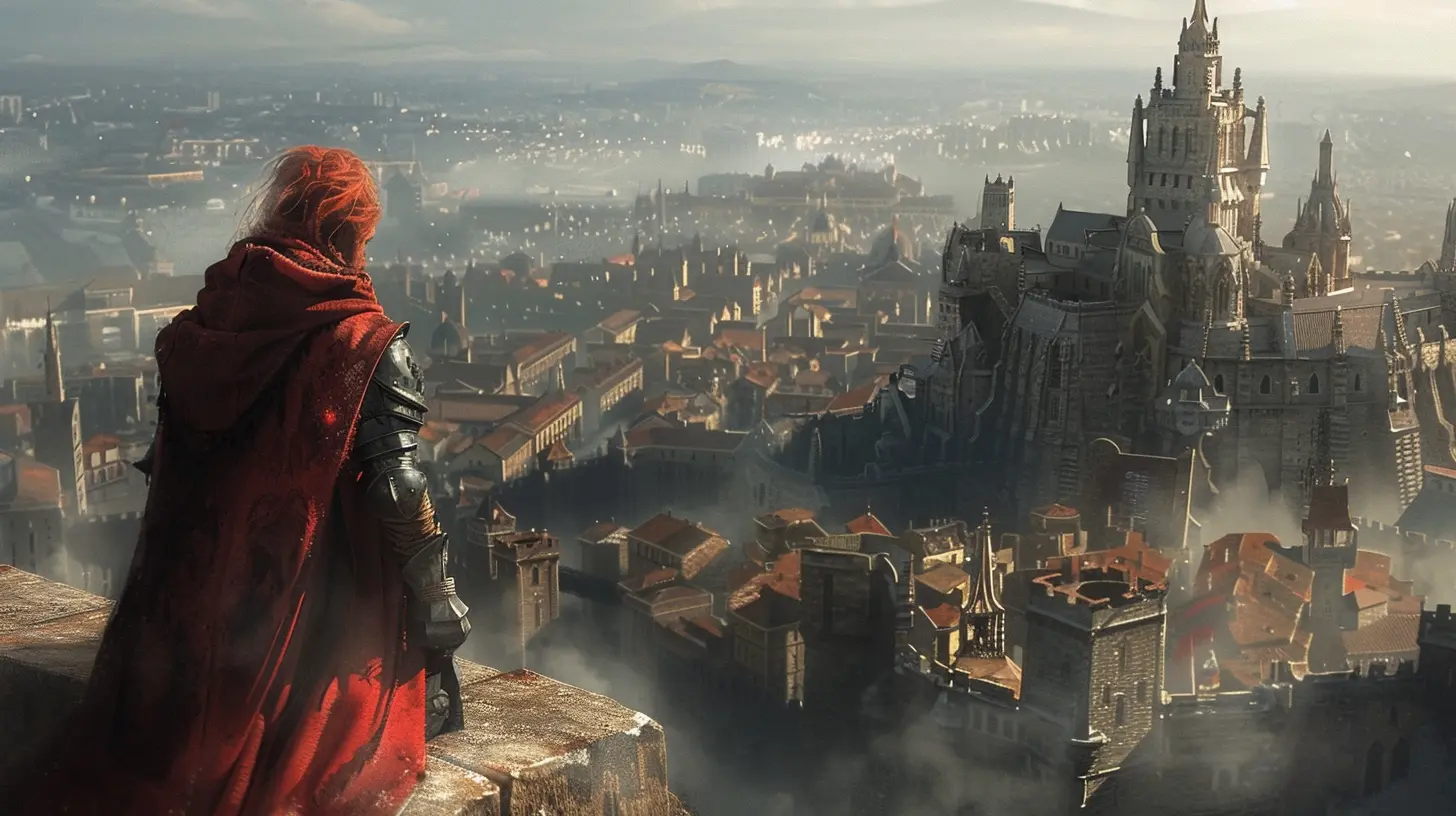High-Profile Game Delays: What's Really Going On?
10 August 2025
If you’re a gamer, you’ve probably felt that sting of disappointment when a highly anticipated game gets delayed. One minute, you’re counting down to the release date, and the next, you’re hit with the dreaded announcement: "We’ve decided to push back the release to ensure the game meets our standards." Ugh, right? But why does this keep happening? Are developers overpromising? Are publishers to blame? Or is it something more complex?
Let’s dive into the world of high-profile game delays. We’re going to break it down, no jargon or fluff—just a good look at what’s really going on.
The Reality of Game Development: A Delicate Balancing Act
Making a game isn’t just about slapping together some graphics, writing a bit of code, and calling it a day. Oh no, it’s more like orchestrating a massive symphony, where every instrument (or department) needs to be perfectly in sync.Game development involves teams of designers, artists, writers, programmers, testers—you name it. The journey from concept to creation is filled with tight deadlines, piles of bugs, and endless coffee cups. Now, imagine trying to juggle all of that while also aiming to deliver a polished product that players will love. It’s easy to see why delays happen, right?
Why Are Big Games Being Delayed So Often?
Okay, let’s get to the point. Why are so many high-profile games getting pushed back? Here are some of the key reasons.1. The Rise of Unrealistic Expectations
Let’s keep it real—sometimes marketing teams shoot for the moon, promising the next big masterpiece without fully understanding the workload required. It’s like boasting about a five-course meal before checking if you even have a chef in the kitchen.Developers often feel the heat to stick to these promises, even if it means cutting corners. Eventually, though, reality sets in, and a delay becomes inevitable. Better late than releasing a broken mess, right?
2. The Pandemic’s Lingering Aftermath
Let’s not forget the havoc that COVID-19 brought to every industry, gaming included. Developers suddenly found themselves working remotely, which sounds great in theory but led to inefficiencies. Team communication suffered, collaboration tools had their limits, and productivity took a hit.Even though things are getting back to "normal," that disruption left a lasting impact. Many studios are still playing catch-up, which means more delays.
3. Crunch Culture Backlash
If you’ve been a part of gaming discussions recently, you’ve probably heard the term "crunch." For years, developers worked grueling hours to meet deadlines, often at the expense of their health and personal lives. This unsustainable practice became a huge talking point, and for good reason—it’s toxic.In recent years, many studios have vowed to give their employees better work-life balance. But that also means that deadlines are taking a backseat to sanity. It’s a tradeoff, and honestly, it’s probably for the better, even if it stings in the short term.
4. Polishing for Perfection
There’s a saying in the gaming industry: "A delayed game is eventually good, but a rushed game is forever bad." (Thanks, Shigeru Miyamoto!) Releasing a game that’s riddled with bugs and glitches can tank a studio’s reputation faster than you can say "patch update."Take Cyberpunk 2077, for example. Despite multiple delays, it launched in such a broken state that it became a PR nightmare for CD Projekt Red. Other developers have clearly taken that as a cautionary tale. Sometimes, delaying the game is the only option to avoid a similar disaster.
5. Technology Isn’t Always Cooperative
Modern games are pushing the boundaries of what’s possible in terms of visuals, mechanics, and storytelling. While that’s incredible from a player’s perspective, it means developers are often working with cutting-edge technology that isn’t always reliable.Game engines can be finicky, servers can crash, and last-minute technical hurdles can throw the entire schedule off track. It’s frustrating, but hey, innovation isn’t easy!
The Impact on Players and Studios
Of course, delays aren’t just frustrating for players—they can also create huge challenges for studios.For players, it’s a double-edged sword. On the one hand, we appreciate that developers want to give us the best possible experience. On the other hand, waiting months (or even years) longer than expected can sour the hype. It doesn’t help when some delays are announced just weeks before the planned release date. Talk about a gut punch!
For studios, delays can mean budget overruns, strained relationships with publishers, and sometimes even layoffs. It’s a high-stakes decision that nobody takes lightly.
The Pros and Cons of Game Delays
Let’s take a moment to weigh the good and the bad, shall we?The Pros
- Better Quality: A delay usually means the game will be more polished and enjoyable.- Less Crunch: Developers get more time to breathe. Burnout isn’t fun for anyone.
- Long-Term Reputation: Taking the time to perfect a game can boost a studio’s credibility.
The Cons
- Frustrated Fans: Players lose trust when deadlines are repeatedly missed.- Financial Strain: Extra development time isn’t free—it adds up quickly.
- Hype Fatigue: Too many delays can kill the excitement.
Can Studios Avoid Delays Altogether?
You might be wondering: can’t developers just plan better? It’s a fair question, but here’s the thing—game development is inherently unpredictable. It’s like trying to bake a cake while constantly switching ingredients halfway through. Even with the best planning, there are always curveballs.That said, some studios are finding ways to minimize delays. For instance, more developers are adopting the "it’s ready when it’s ready" approach, avoiding hard deadlines until the game is nearly complete. Others are improving their project management tools and techniques. It won’t eliminate delays entirely, but it’s a step in the right direction.
The Bright Side: Patience Pays Off
It’s easy to be mad when a game you’re dying to play gets postponed. But remember—it’s usually for the best. A little patience now can save you a lot of frustration later. Nobody wants to pay $60 (or $70—thanks, next-gen pricing) for a game that feels half-baked.So, the next time you see a delay announcement, take a deep breath and remind yourself that the wait is probably worth it. After all, you wouldn’t rush a chef making your favorite dish, would you?
Conclusion
High-profile game delays are frustrating, no doubt about it. But more often than not, they’re necessary. Whether it’s due to the complexities of development, the lingering effects of the pandemic, or a commitment to quality, these delays reflect the challenges of creating something extraordinary.So, the next time your eagerly awaited game gets pushed back, try to keep the bigger picture in mind. Great games take time, and the best things in life are worth waiting for—even if it feels like an eternity.
all images in this post were generated using AI tools
Category:
Gaming NewsAuthor:

Madeleine McCaffrey
Discussion
rate this article
2 comments
Kristina Evans
While high-profile game delays often frustrate fans, they spotlight the industry's struggle with expectations versus reality. Developers face immense pressure to deliver quality, revealing the complex balance between artistic vision and market demands.
November 22, 2025 at 4:30 PM

Madeleine McCaffrey
Thank you for your insight! You're absolutely right—game delays highlight the challenging dynamics between creative aspirations and market pressures, reminding us that quality often takes time.
Tenley Graham
Great read! Game delays can be frustrating, but they often mean developers are committed to delivering top-notch experiences. Let’s embrace the wait! After all, good things come to those who can patiently enjoy the anticipation. 🎮✨
August 10, 2025 at 2:55 PM

Madeleine McCaffrey
Thank you! Absolutely, the wait can be tough, but it's worth it for quality games. Your enthusiasm is appreciated! 🎮✨


